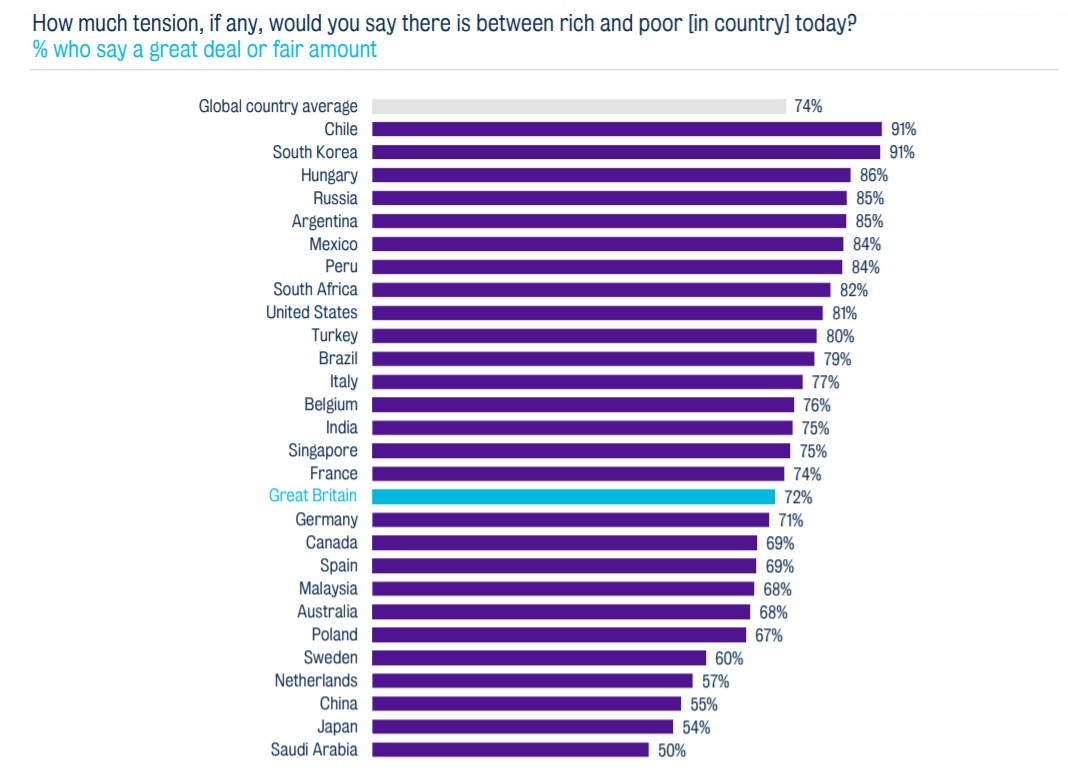Tension between rich and poor is seen as the driver of division in Hungary

The gap between the rich and the poor divides societies around the world the most, with at least 74% of respondents perceiving this contrast as the most dividing factor, according to a recent survey.
A total of 23,000 people in 28 countries completed Ipsos’ online questionnaire, which sought to assess the types of divisions people experience in everyday life around the world.
The rich-poor tension is felt to be strongest in South Korea and Chile (91% of respondents), followed by Hungary with 86%.
Regarding this aspect, Hungary tops the European list.

Unsurprisingly, Hungarians feel even more tension among supporters of different parties. 88% perceive it as a very serious problem in Hungary, ranking the country third after South Korea and the United States.
444 writes that the tension between the metropolitan elite and the ordinary working people is considered strong by 76% of Hungarian respondents. Here, too, only Chile, Russia, and South Korea are ahead of us.
The same proportion mentioned the tension between different social classes, barely lagging behind Brazil. Fewer, but still quite a few experience tensions between representatives of liberal, progressive ideas and traditional values in Hungary (70%).
More than 60% feel the tension between immigrants and those born in Hungary.
It seems that Hungarians do not perceive other types of divisions as severe. For instance, respondents put religious and male-female opposition in the last two places.
People were also asked whether they see “culture wars” in society based on media reports and everyday conversations. In Hungary, 33% answered yes, while in South Africa, the United States, and India, almost 60% did so. On the other end of the spectrum, in Japan, it was only 9%.
Finally, political correctness was also discussed. In this case, respondents placed themselves on a scale of 7, where 0 means “many are offended too easily” and 7 means “people should communicate more sensitively”.
It may come as a surprise, but in Hungary, 58% of respondents placed themselves in the middle or second half of the scale, believing that we need to change the way people talk. Find out more HERE.
Source: www.444.hu






